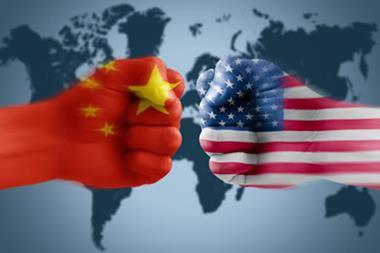AMRAE conference attendees heard of the risks posed by a generation of alienated youth and an emerging middle class
The alienation of young people in an age of growing inequality could pose a major risk to business, according to Alternatives Economiques managing editor Thierry Pech.
Pech raised his concerns at a roundtable session at the Association for Risk Management and Corporate Insurance (AMRAE) conference in Lyon, France, this week, which was discussing the political, economic and social issues that pose risks to business.
Pech said many people who once believed that a good education would lead straight to a worthwhile job were now having to wait longer to find employment, with many remaining in a state of dependency until they are 28 or more. This despite doing what they were told was the right thing and investing in their education, he said. Additionally, Pech said, the number of young people with no qualifications was also growing, which was fuelling the discontent.
Meanwhile, François Heisbourg, historian and former director of the Institute for Strategic Studies in London, said that the rise of a new middle class in emerging economies also posed a risk to business.
He pointed to China, in particular, where between 10% and 20% of the population could now be considered to be in a new middle class category.
In contrast to received opinion, Heisbourg said, this was not necessarily a phenomenon which led to stability. The economic empowerment of a middle class can lead directly to conflicts with governments as it seeks to demonstrate its own ideas of patriotism and legitimacy, he said.
Heisbourg argued that the kind of class struggles witnessed in Europe in the 19th and 20th centuries could easily arise in the emerging economies of the East.
With the shift of economic power away from societies that had previously enjoyed it, further instability could arise. What effect could China’s burgeoning middle class have on other countries? Heisbourg pointed to Japan as an example where the growing discrepancy between the purchasing power of the countries’ middle classes might lead to discontentment or worse.




















No comments yet